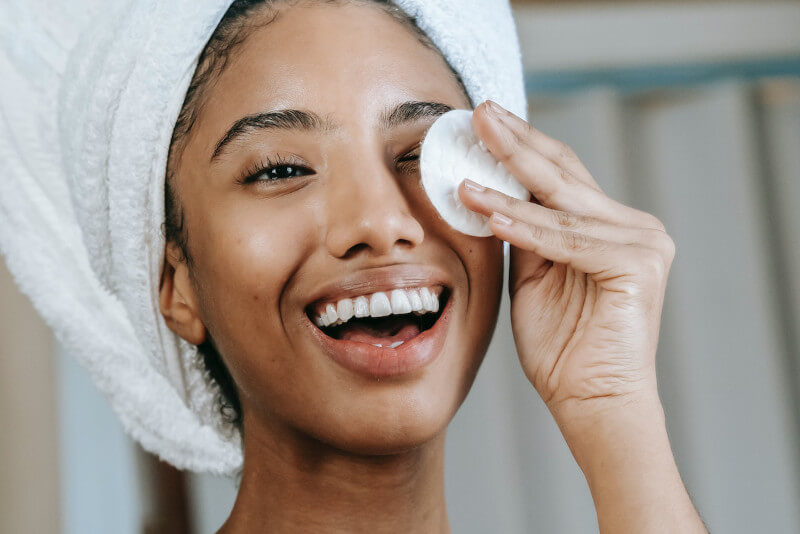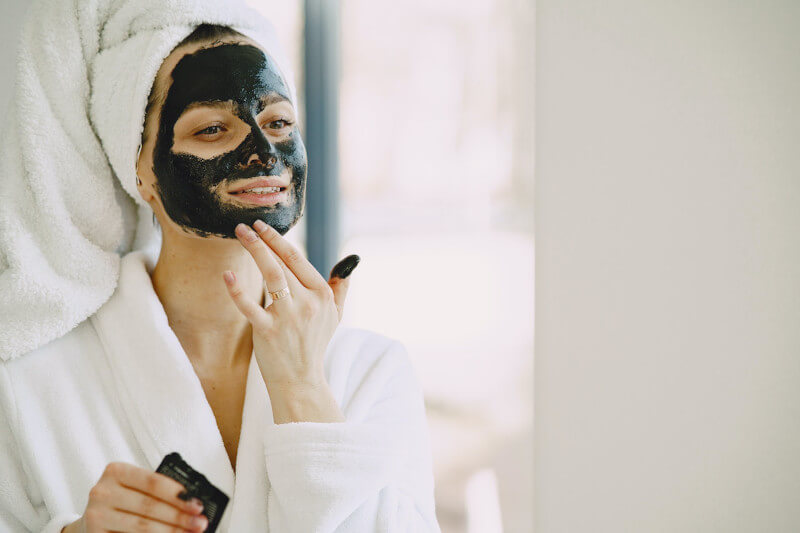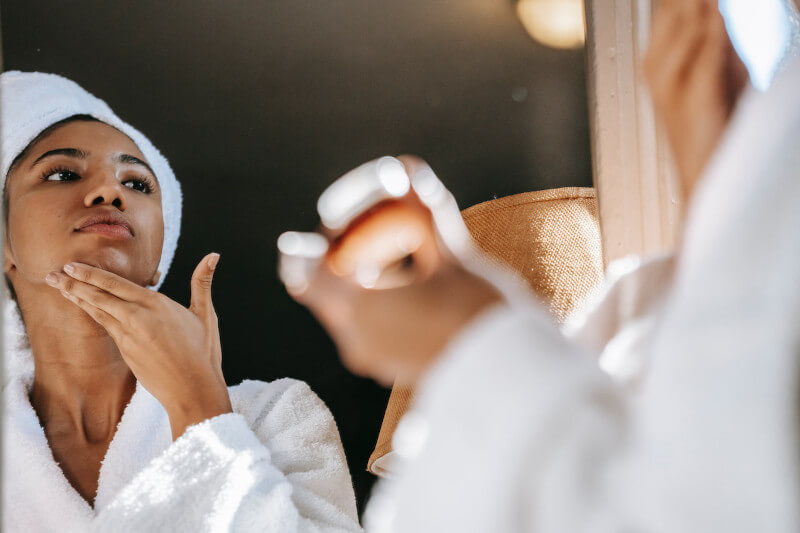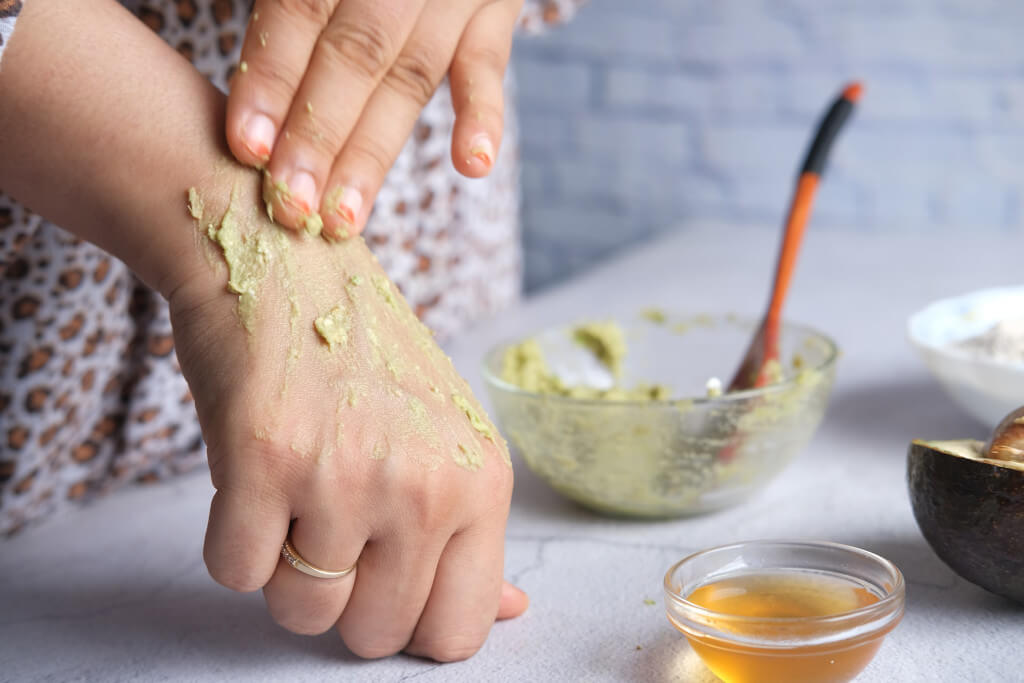Whenever the sebaceous glands in the epidermis produce an excessive amount of sebum, the result is oily skin. The skin produces a substance called sebum, which is cakey, and oily and serves to both preserve and moisturize the skin.
The production of sebum is essential to maintaining healthy skin. On the other hand, excessive sebum production can result in oily skin, blocked-up pores, and breakouts. It is often necessary for an individual to develop a routine of providing routine skin care to successfully manage oily skin. In this blog entry, we will discuss natural ways that a person can alleviate the signs of oily skin without resorting to medication.
First, Make Sure You Wash Your Face Frequently
The quantity of the oil that is produced by the skin can be reduced by rinsing with warm water and mild soap. Frequent washing can assist in lowering the amount of oil that is produced by the skin. When washing oily skin, one should consider using one of the following processes:
Cleanse With Warm Water and a Mild Detergent First
Avoid using soaps that contain added moisturizers, perfumes, or chemical treatments because these can cause skin irritation and cause it to dry out, which will cause the skin to respond by producing more sebum. Avoid using scrub brushes and washcloths that are too rough, as the additional friction they cause may cause the skin to produce more oil. If this does not work, there are acne treatments available that contain medication that may be of assistance. These products contain acids that can help treat oily skin, including but not limited to:
- Salicylic acid
- Glycolic acid
- Beta-hydroxy acid
- Benzoyl peroxide
Certain types of skin may experience irritation from these acids. When beginning to use a new product, it is best to test it out on a small patch of skin first to determine how the body will react to it.
Finding success with a facial cleansing routine can often begin with selecting the appropriate products. Even though it resulted in a rise in sebum production in some regions of the face, a gentle facial cleanser that contained sodium laureth carboxylate and alkyl carboxylates was discovered to be successful in treating mild facial acne.
The use of fragrance-free glycerin soap and warm water is likely to be effective for the majority of individuals who suffer from oily skin but do not have acne breakouts. You can buy a variety of facial cleansers from the comfort of your own home. Click here to find out more about Health on Point’s Oily Skin Cleanser.
Apply a Facial Toner

Toners that are acrid and incorporate alcohol tend to dehydrate the skin. Natural astringent toners have the potential to make expanded pores look smaller in some individuals and to eliminate various particles of product or makeup that have the potential to plug up pores.
Nevertheless, there is a possibility that these products will not work for everybody. When using astringent toners, some people may experience a tingling or itching sensation on their faces. If something like this occurs, it might be an indication of irritation, which in turn might cause more sebum to be produced. Folks should always perform a skin test before using a brand-new toner to ensure that it does not irritate their skin.
Dry Your Face by Patting It
Individuals should pat their skin dry with a microfiber towel after rinsing their faces and applying toner. This should be done gently and carefully. It’s not a good idea to pull down on the skin with a washcloth or use a towel that is too harsh because this can cause the skin to become stimulated and produce further sebum.
Blotting Papers and Medicated Pads Should Be Utilized
Blotting papers are water-absorbing papers that have been specifically developed to remove oil from the skin. They won’t treat sebum production and secretion; however, they can be utilized to eliminate extra oil from the skin during the day to make it look less shiny. A person might also try using medicated fabric pads that are cleansed with common ingredients, such as glycolic acid or salicylic acid. These may assist in the removal of excess oil that has accumulated on the skin throughout the day while also cleansing the pores.
Use Facial Masks

Specific facial masks could be useful in treating oily skin. These products might include components such as:
Clay
Masks that include minerals like smectite or bentonite can soak up oils and decrease skin shininess and sebum levels without disturbing the skin. Apply them only once in a while to avoid the skin from drying out, and apply a delicate lotion after that.
Honey
Research recently reported that organic unprocessed honey has antiseptic and antimicrobial characteristics. A honey face mask that is applied for ten minutes may significantly minimize breakouts and oily skin whilst also maintaining the smoothness of the skin.
Oatmeal
Masks that include colloidal oatmeal could support skin cleansing. Oats contain delicate, purifying saponins, antioxidants, and anti-inflammatory molecules that might relieve skin irritation.
Apply Moisturizers

If the appropriate moisturizer is being used, the skin could reap the benefits of using it. Although many individuals with oily complexions keep away from moisturizers for worry that their skin will look greasier, applying the appropriate moisturizers can aid this type of complexion. People who have very oily skin may find that using a moisturizer that does not contain the oil is the best way to prevent their skin from feeling greasy while still keeping it hydrated and shielded.
According to a study that was conducted, aloe vera may be an effective moisturizer for acne treatment and oiliness. If this is something that is still not effective enough to treat more severe cases of acne, follow the link to find out more about the lightweight Cetaphil Acne Moisturiser offered by Health on Point.
Aloe vera contains several molecules that, when applied to the skin, can have an innately calming and relaxing effect. The study indicated that a product must contain at least 10% aloe to be a useful moisturizer. Some individuals opt to use pure aloe gel for moisturizing, but they ought to be conscious of concealed additives, particularly solubilized alcohol, which might dry and cause skin irritation.
Protection
It can be challenging to avoid getting oily skin if you inherit it from your parents. Even oily skin brought on by shifts in hormone levels is challenging to keep under control. The most effective method for preventing oily skin is for a person to identify a skincare regimen that is suitable for them and then adhere to it religiously.
When oily skin appears, the temptation to cover it up with makeup is understandable. Nevertheless, the use of specific products, especially those that contain oil, may aggravate symptoms or cause pores to become clogged. Water-based makeup could be a better solution for some people, while other people find that going makeup-free is the healthiest choice for their skin.
There are a lot of people who believe that the way they eat is what prevents their skin from flaring up. Maintaining an adequate level of hydration, avoiding foods high in trans fats and fattier foods, and eating a balanced diet consisting primarily of unprocessed foods may be of assistance.
Our Viewpoint
There are a lot of home treatments for oily skin, but very little research has been done on most of them. However, there are a few that there are proofs to suggest that could be helpful. Personal experience is the gold standard for determining whether or not something is beneficial.
Discover a regimen that works for you and adhere to it. That’s the best advice anyone can give you. It is possible that speaking with a dermatologist and working together with them to keep track of everyday tasks and variables that might induce oily skin is the most effective method of treatment.
It is necessary to try any product or technique initially on a tiny area of the skin to observe any responses by the skin. This can be done in a variety of ways. If a person’s skin has a negative reaction to a particular product, they should refrain from using that product again and instead seek the advice of a dermatologist about alternative treatments. A person who suffers from bad acne and exhibits signs of oily skin should seek the advice of a dermatologist to determine the most effective way to safeguard their skin and avoid developing serious medical conditions or tissue damage.


